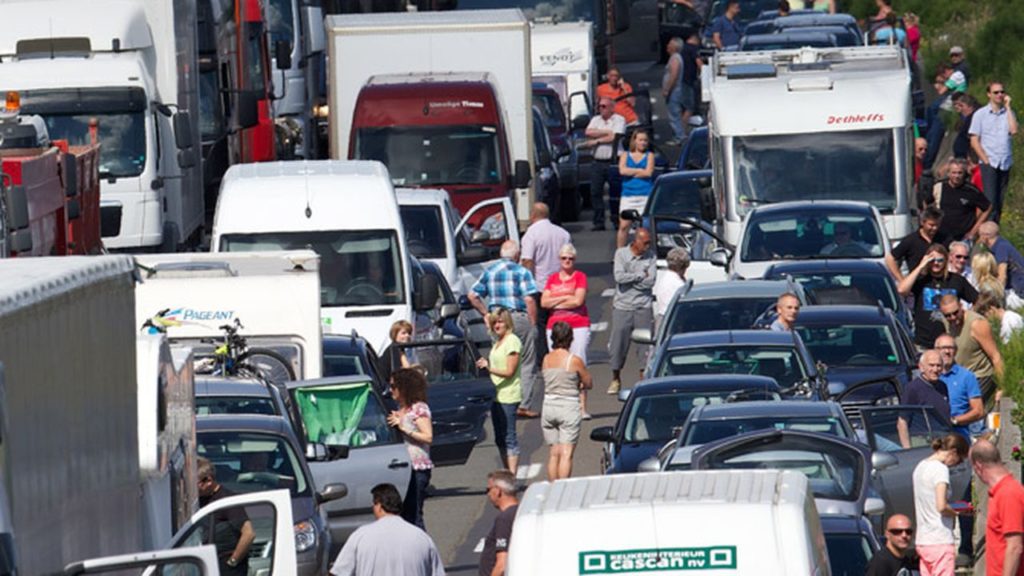The practice of “rubbernecking” – slowing down while driving to look at something, usually an accident, on the other side of the road – is costing the country one billion euros a year, the traffic institute Vias reports.
Every day on average, rubbernecking leads to 26.25km of traffic jams on Belgium’s roads, often leading in its turn to further accidents as drivers’ attention is distracted from the road ahead. And Vias calculates that every hour spent in traffic costs the economy 10.58 euros. The traffic tailbacks caused also cause delays for emergency vehicles arriving at the scene of the accident.
According to American research, 16% of all accidents are caused by rubbernecking. Here, exact figures are not compiled, but the category of “accident with injuries following a previous accident” accounts for 530 a year, Vias says. A recent and additional danger is when drivers take out their phone to film or photograph what is happening on the other carriageway. At a recent incident where a lorry carrying a crane overturned on the E40 at Wetteren, police at the scene ticketed around 100 drivers taking pictures or video.
That practice in particular is against the law. Rubbernecking per se is not, and Vias recommends that authorities and emergency services place sight-screens at the scene of an accident, which would reduce the time during which an accident is visible to other motorists from 12 seconds to four, cutting the time in which accident danger is highest in three.
Such screens were purchased by the government five years ago, but they remain unused in storage with the Civil Protection service, after the federal traffic police refused to give authority for their deployment.
“For ordinary accidents, no matter how spectacular, it is not worth the trouble to deliver them and set them up,” police spokesperson Sarah Frederickx told De Morgen. “For major incidents such as multiple pile-ups and fatal bus crashes where handling lasts several hours, they should be used.”
Alan Hope
The Brussels Times

